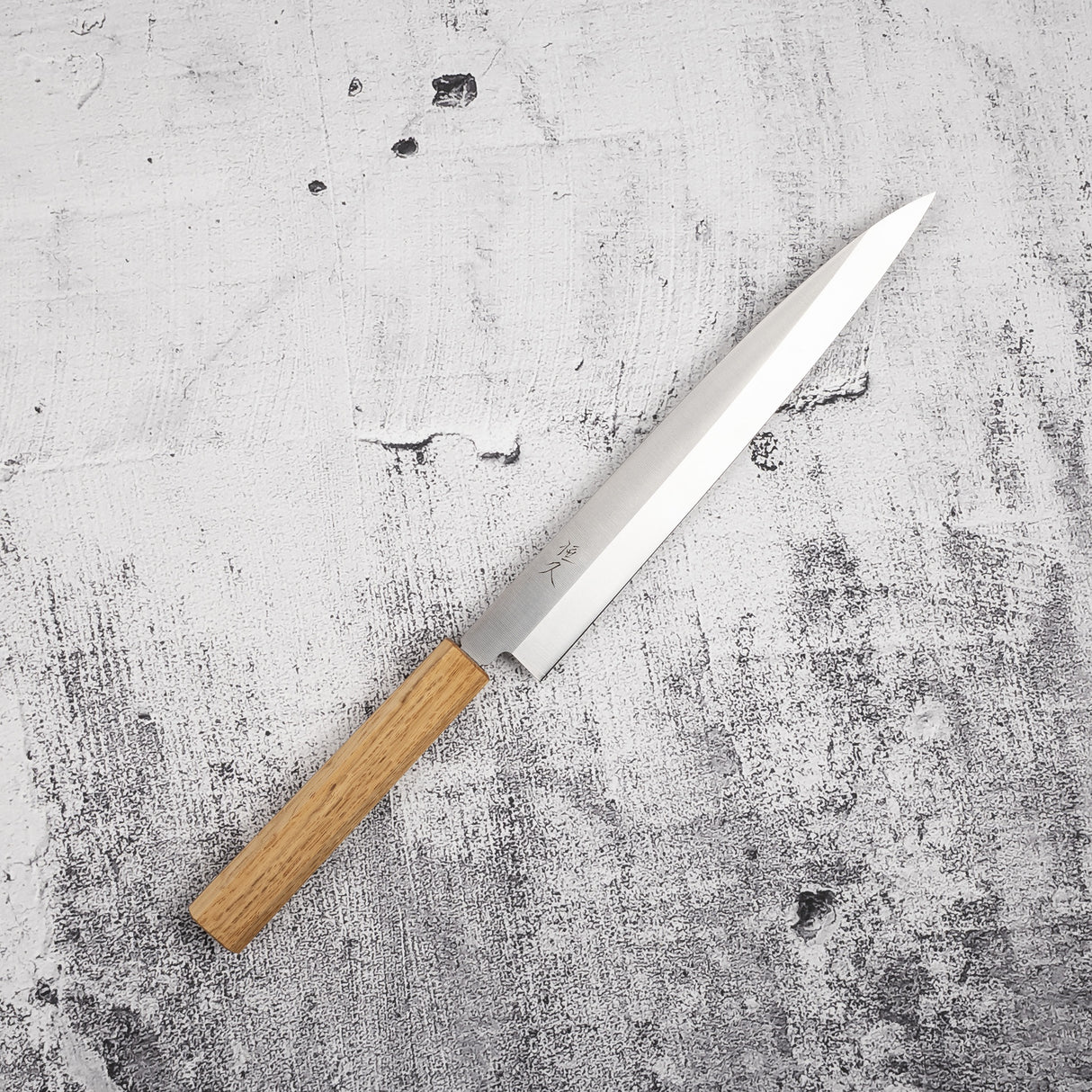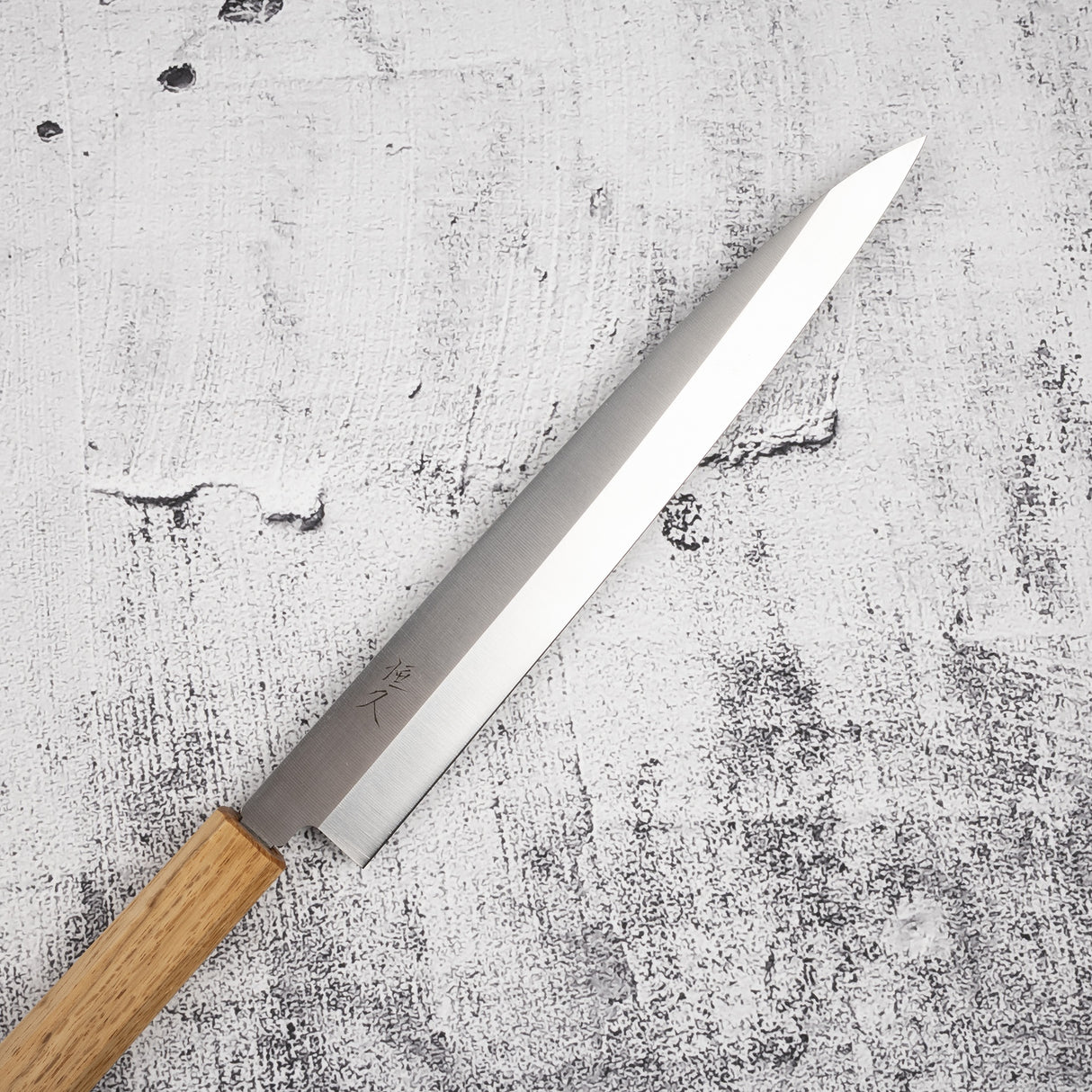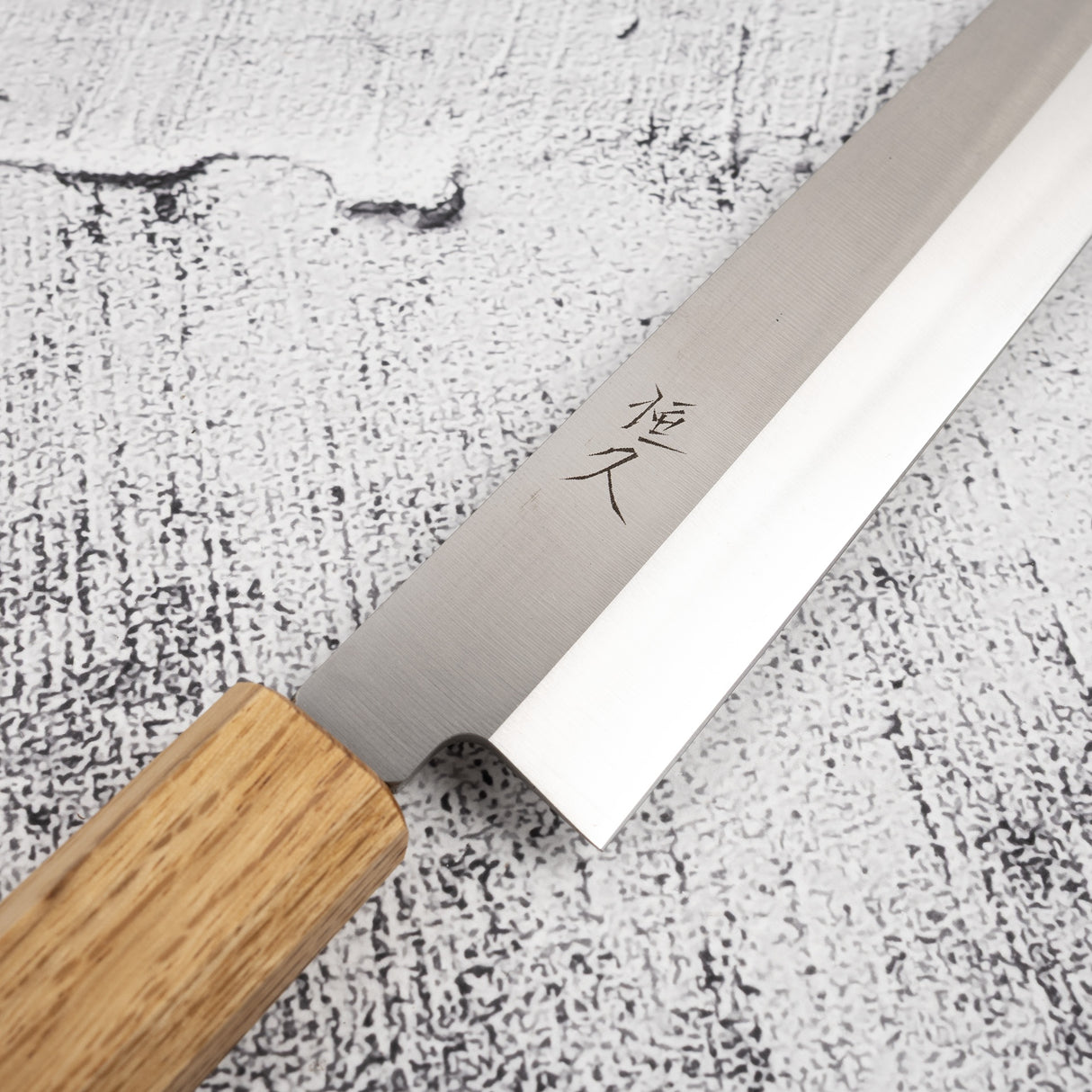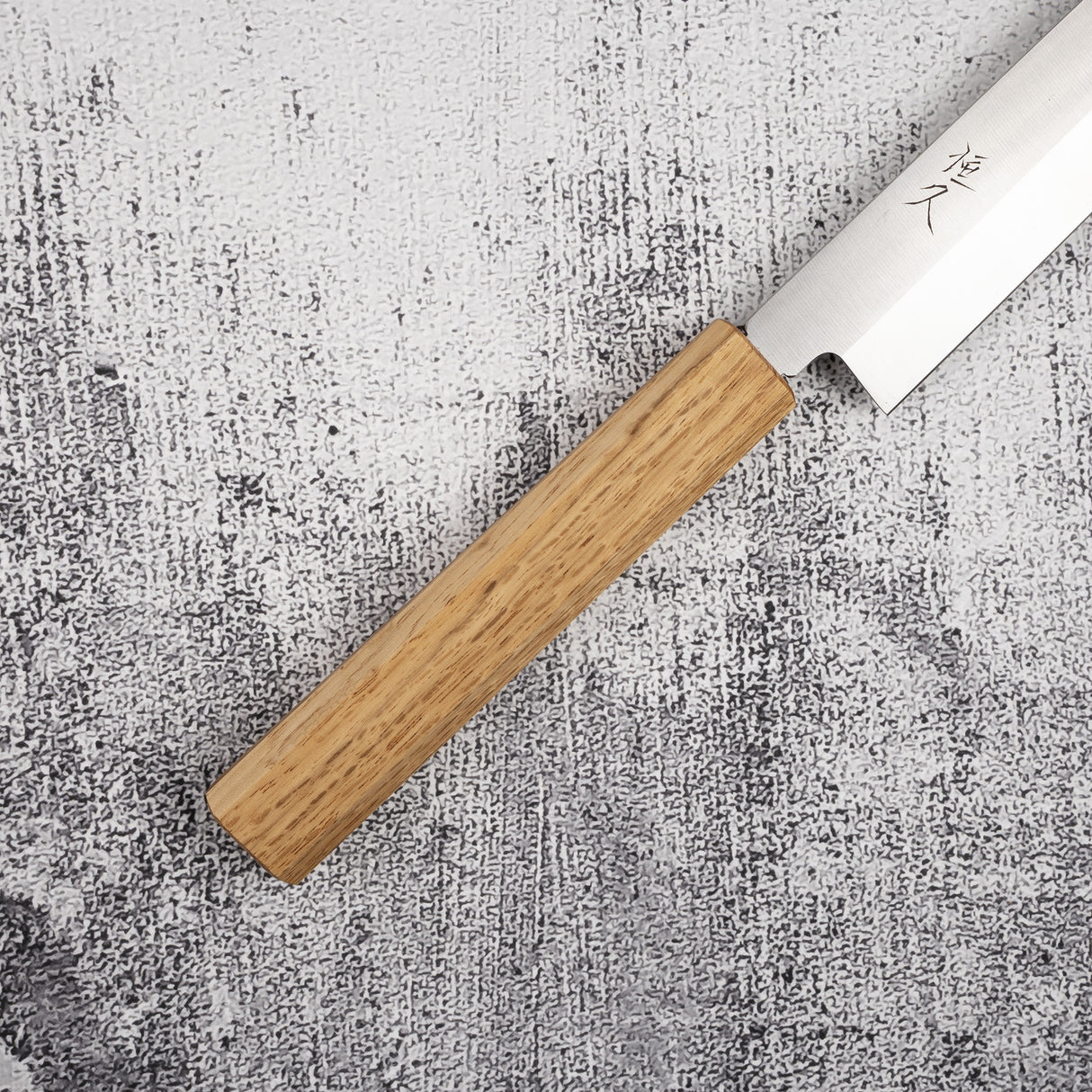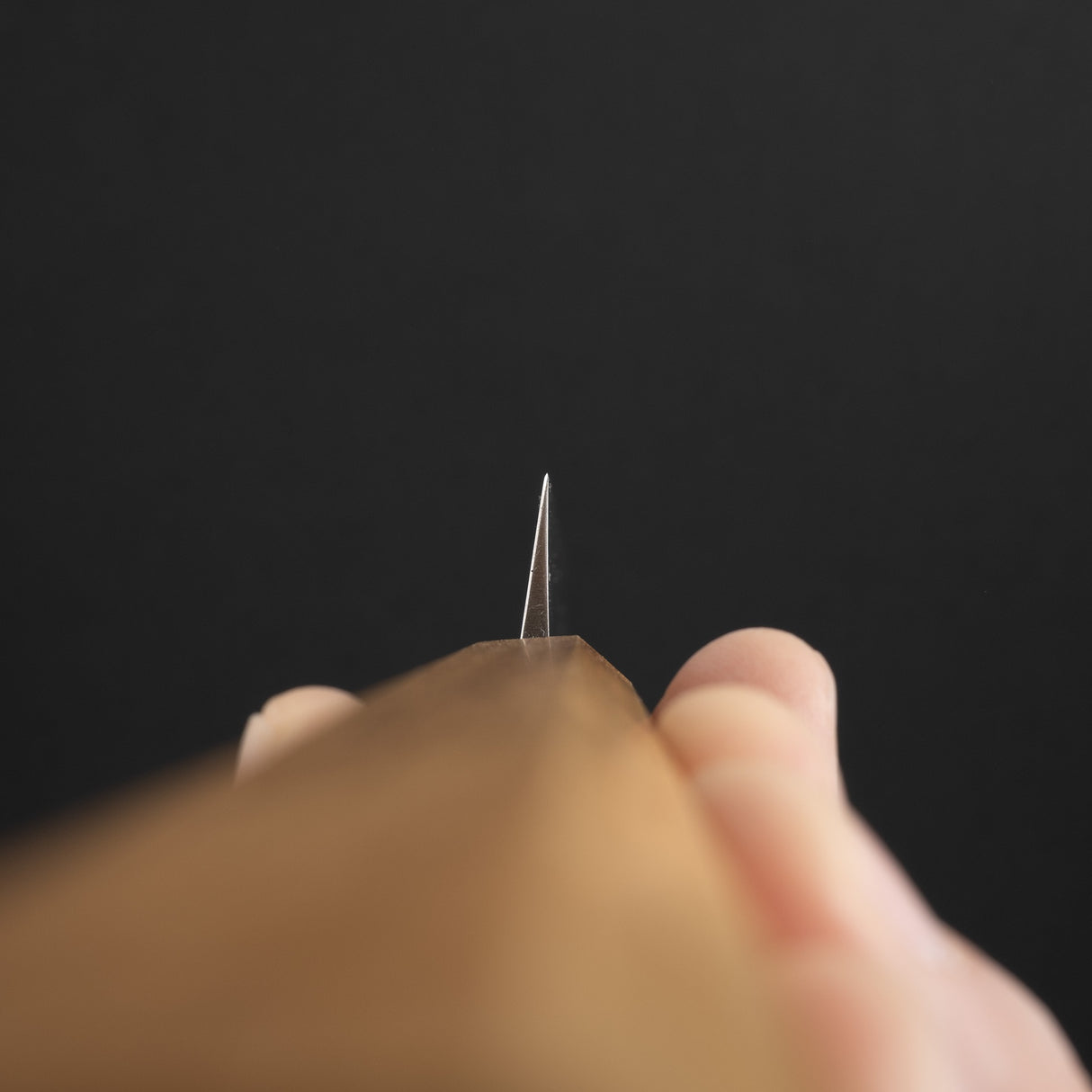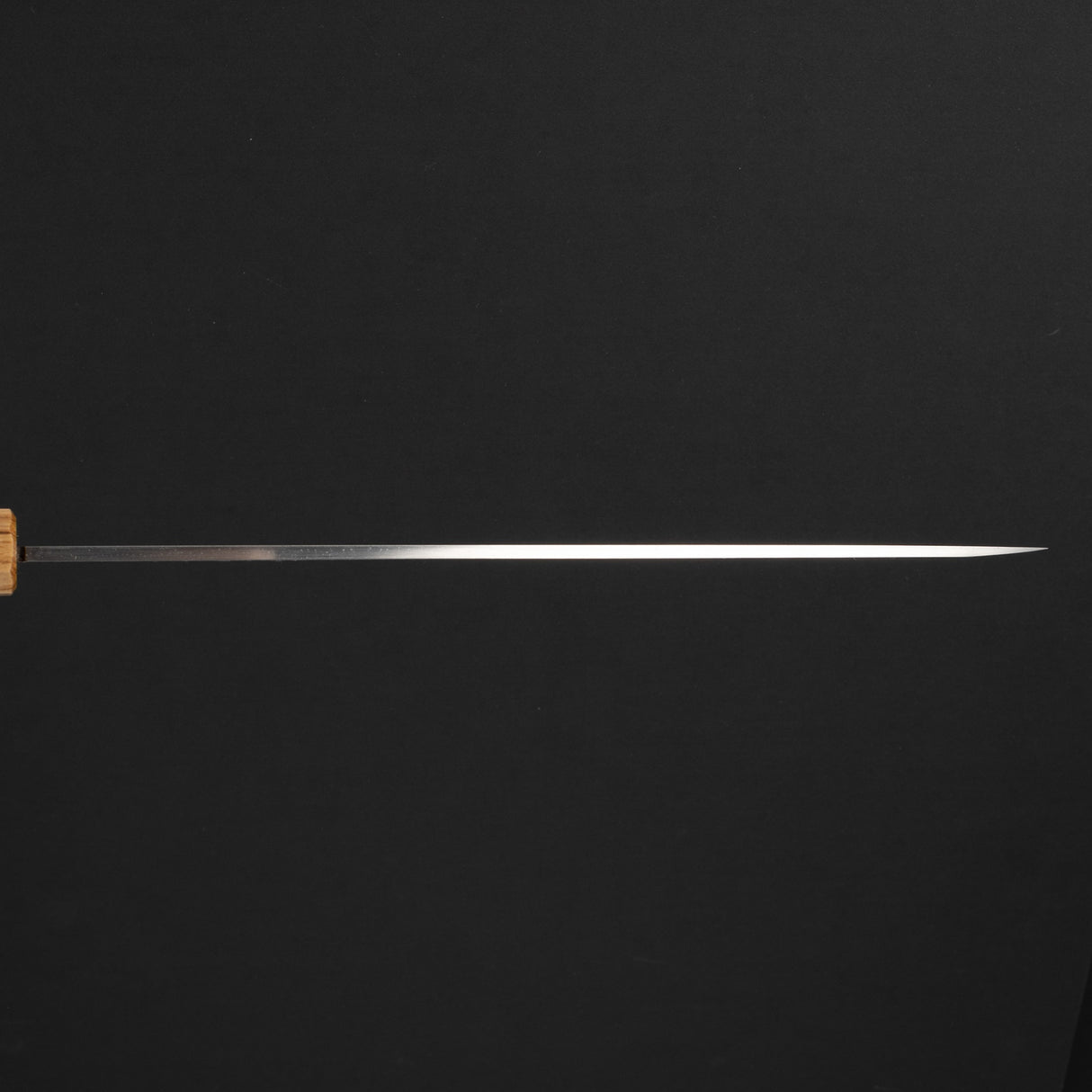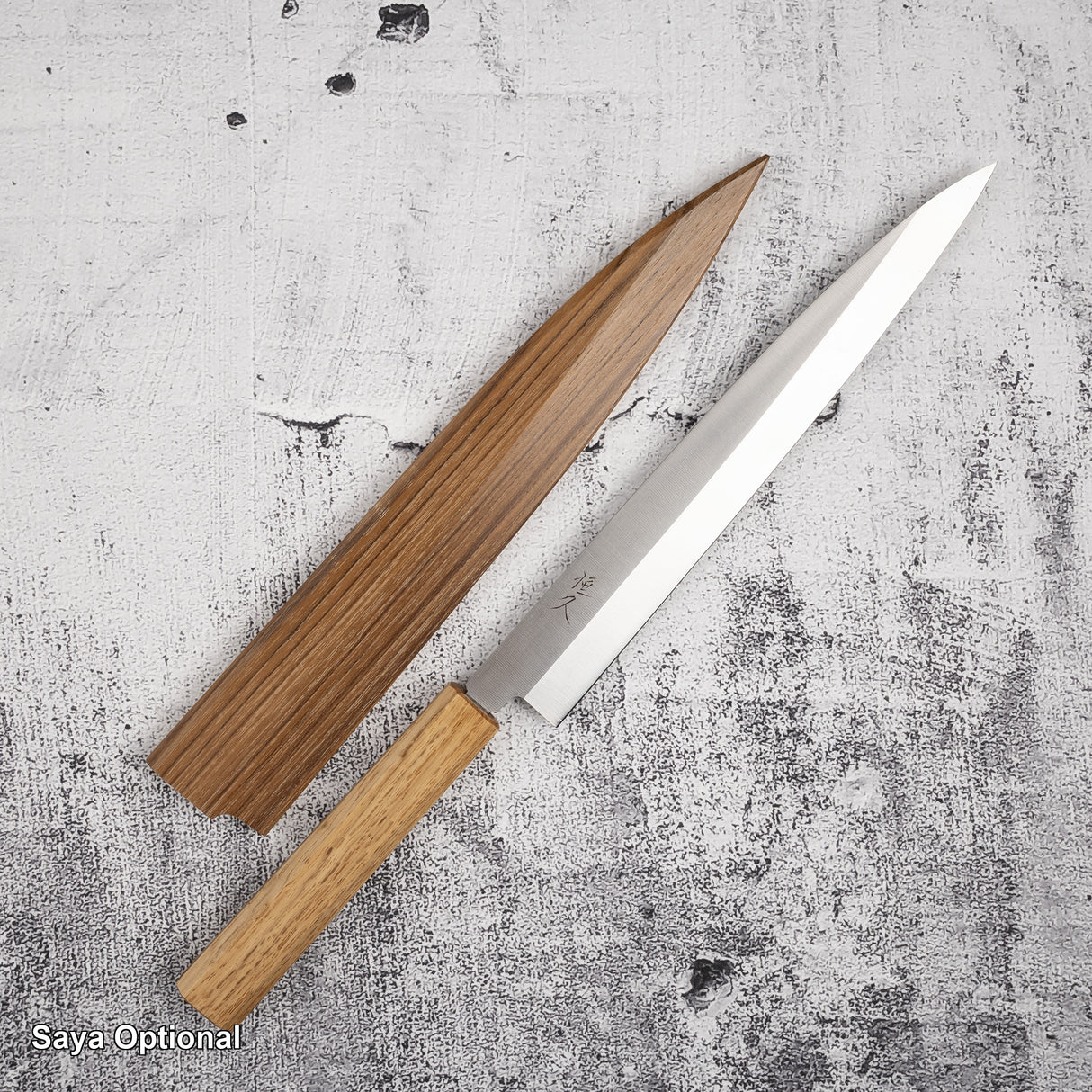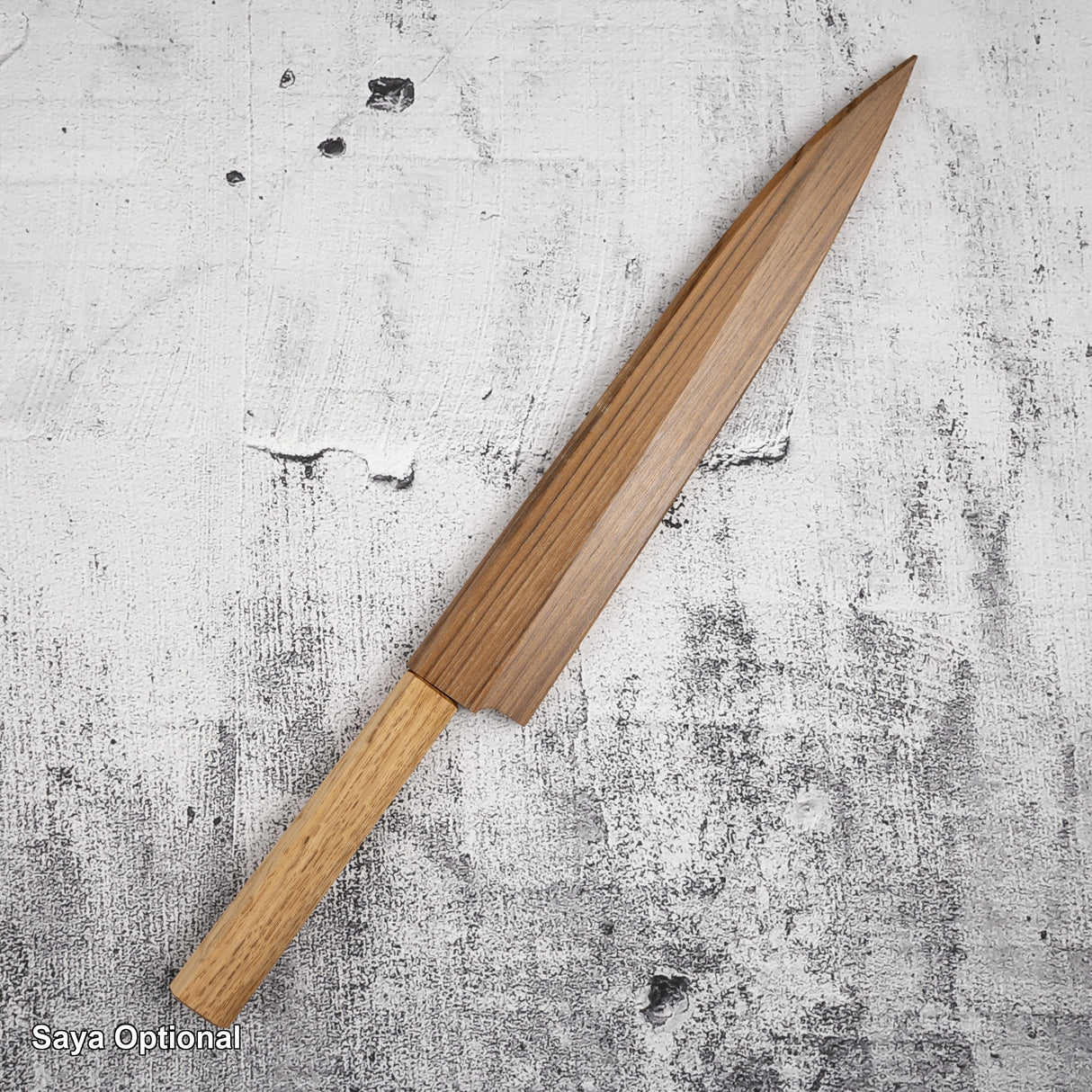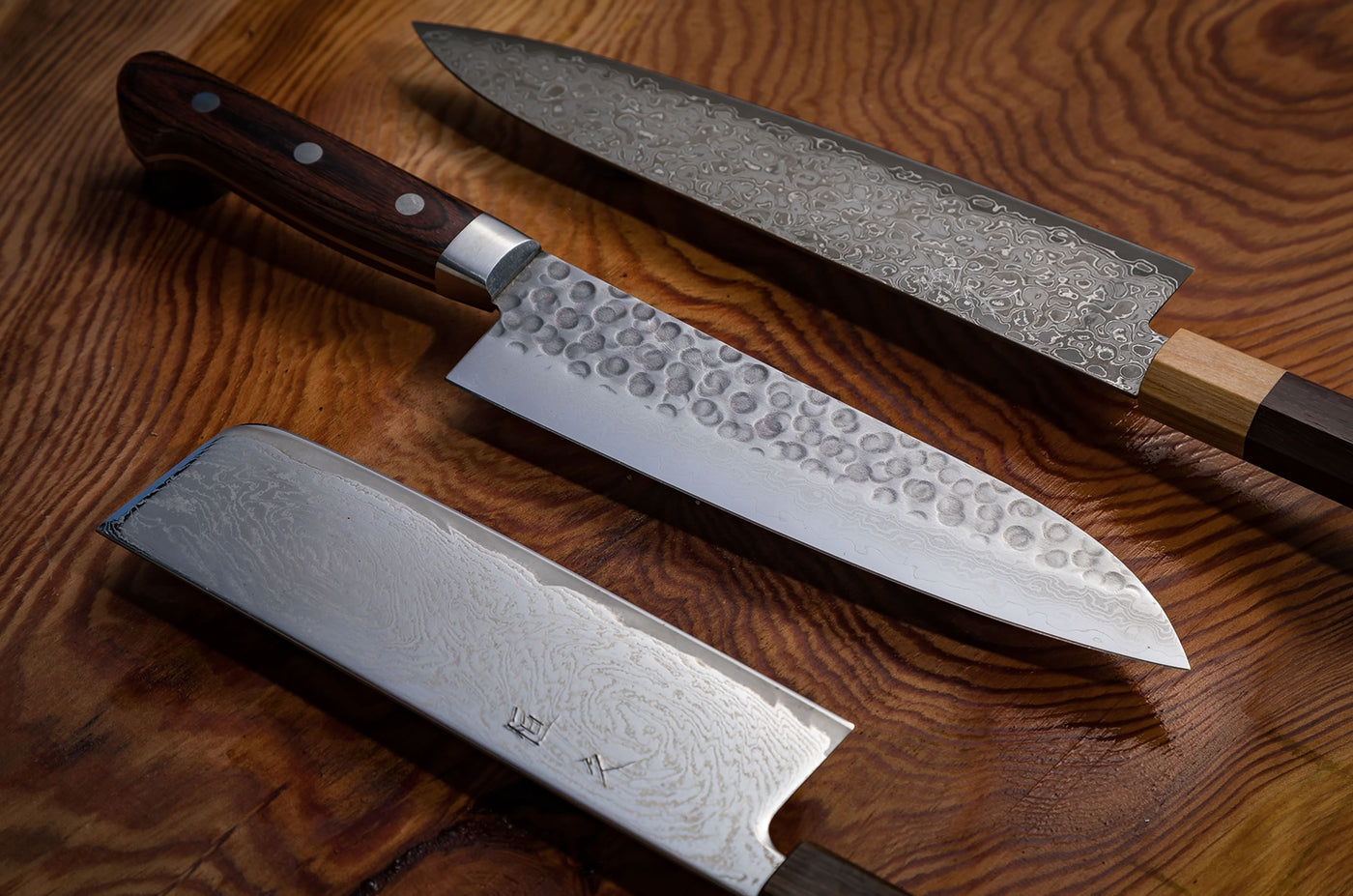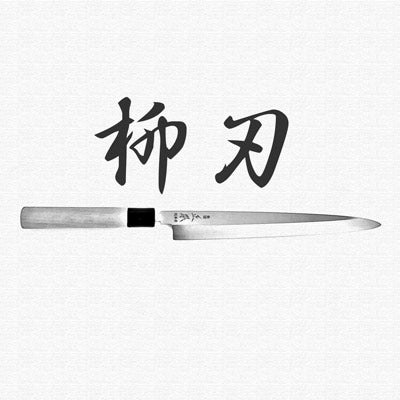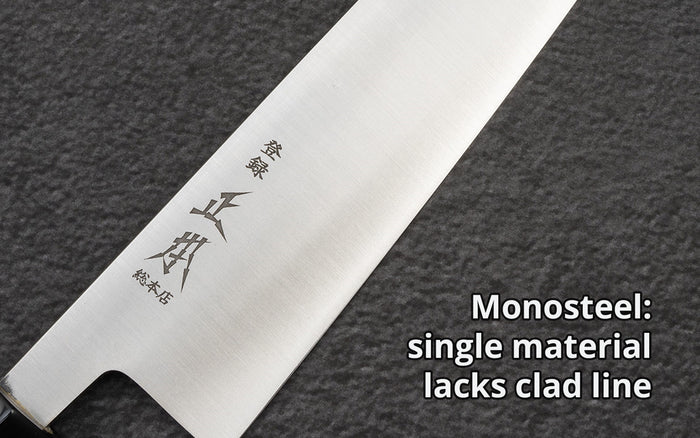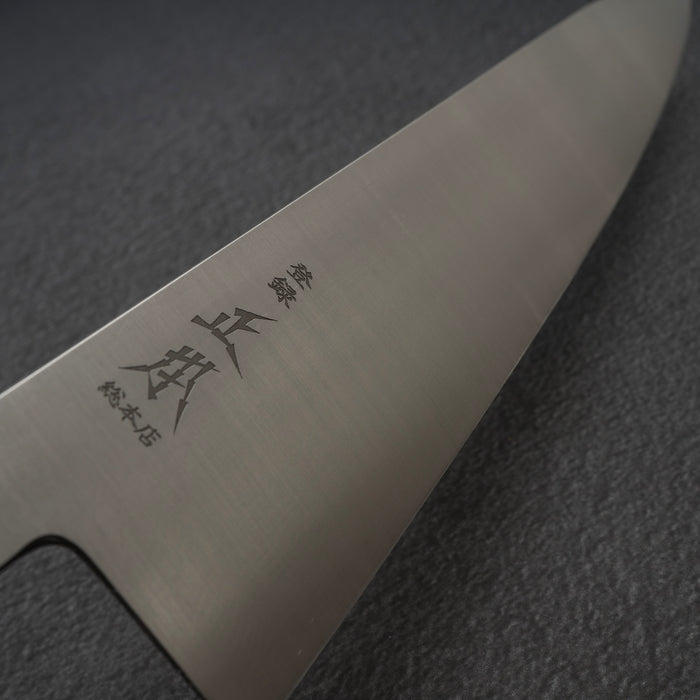Iron Clad | SKU:
TNHS-AUS8-YA240KS
Tsunehisa AUS8 Yanagiba 240mm Monosteel
Regular price
$169.95
Unit price
/
Unavailable
Tsunehisa AUS8 Yanagiba 240mm Monosteel is backordered and will ship as soon as it is back in stock.
Couldn't load pickup availability
Detailed Specifications
| Line | Tsunehisa AUS8 Monosteel |
| Profile | Yanagiba |
| Bevel Type | Single Bevel |
| Weight | 152 g | 5.4 oz |
| Edge Length | 235 mm | 9 1/4″ |
| Heel Height | 33 mm | 1 19/64″ |
| Width @ Spine | 3.0 mm | 1/8″ |
| Width @ Mid | 2.9 mm | 7/64″ |
| Width @ 1cm from Tip | 1.3 mm | 3/64″ |
| Steel | AUS-8 | Stainless |
| Blade Construction | Monosteel |
| Hardness (HRC) | 57 - 59 |
| Surface Finish | Migaki |
| Handle | Japanese Kashi Octagonal |
| Region | Fukuyama |
| Best for |
|

| Pros | Cons |
|
|
|
Care Instruction
- Don't cut hard things! Japanese knives are brittle so bone hacking is a NO NO!
- Wash with neutral detergent after use, and wipe dry;
- Please don't wash knife with dishwasher, it will damage the wood handle;
- Be careful not to leave the knife close to a heat source for a long time;
- It is a lot more dangerous to cut with a blunt knife than a sharp knife!
- It is best to sharpen a Japanese knife regularly on a waterstone.

